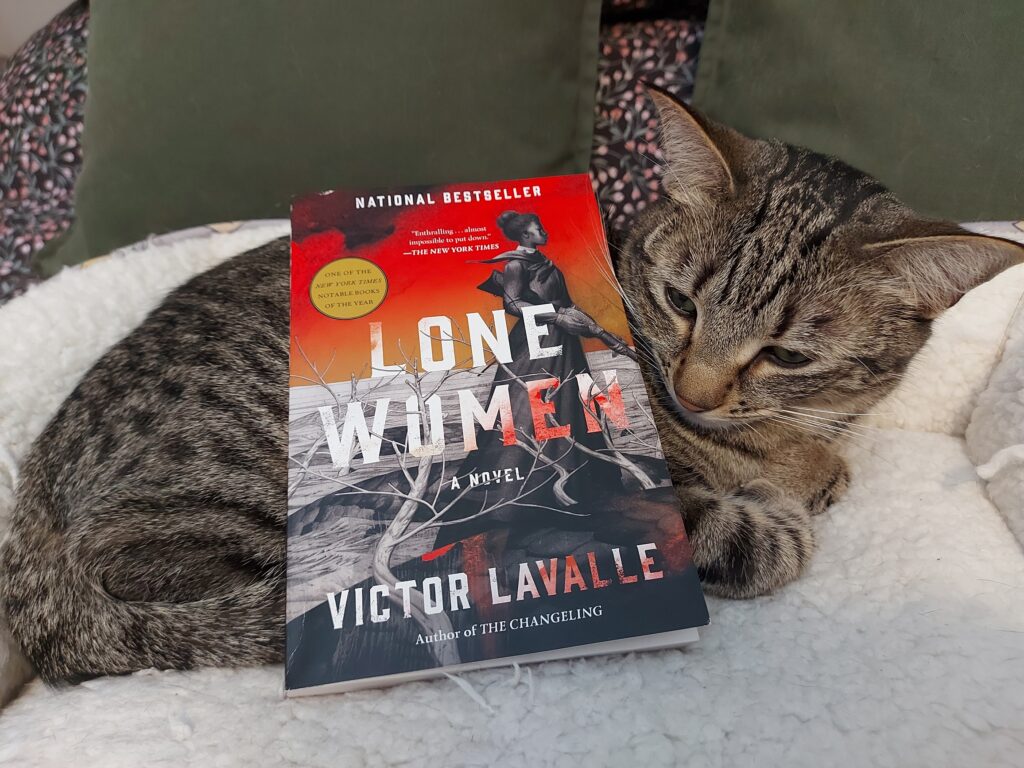Lone Women by Victor Lavalle

I wanted to read Lone Women by Victor Lavalle as it is inspired by the women homesteaders who took advantage of the government’s offer of free land in the American mid-west to anyone who could turn the harsh, inhabitable landscape into a working farm. I love it when women are badass and prove that they can survive without men. Lone Women is also supposed to be a horror novel, and I like the horror genre, but I would say the horror in this novel is underwhelming. As compulsively readable as I found Lone Women to be, I did not find it to be very horrifying.
Lone Women is set in 1915 and is about a Black woman named Adelaide Henry who lives with her parents on a farm in California. The Henry family are part of an enclave of Black farmers, but they keep to themselves because of their horrible secret. When her parents are killed, Adelaide sets her family home on fire – with her parents’ bodies in it – and flees California, dragging a locked heavy steamer trunk behind her.
Adelaide – and her steamer trunk – head to Montana, where she plans on becoming a homesteader. She ends up in a small cabin in the middle of nowhere with winter quickly approaching. The nearest town and her nearest neighbours are miles away. To be honest, I was more concerned about Adelaide being on her own as a Black woman in the middle of Montana than whatever it was she was dragging around in the trunk. But it turns out white people in Montana are okay with Black people, they just do not like Indians, Mexicans or Asians very much.
Adelaide becomes friends with other “lone women” in the area, including her nearest neighbour, a white woman who lives alone with her child; the only other Black woman in the area, who earns a living by making bootleg liquor; and an American born Chinese woman. She is struggling to survive but has help from the other homesteaders. Then shit hits the fan when Adelaide’s family’s secret escapes from the trunk and the killings begin. It doesn’t take long for the white people in town to grab their pitchforks and turn on Adelaide.
I wish Lavalle had spent more time developing the women homesteader aspect of the story. I find the idea of women settling on their own in the wild west to be fascinating, and the ordinary dangers they would have endured to survive is thrilling enough without having to add supernatural horror to the mix. As for the horror aspect of the novel, it is not very horrifying when only the bigots are the ones to die. I never got the sense that Adelaide’s life was in any real danger. Despite its racist themes, though, Lone Women refreshingly ends on a more positive note.